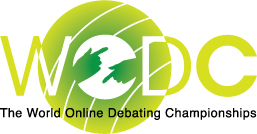International Debate Education Association – in cooperation with the Open Society Foundations (Youth Initiative Program:
http://www.soros.org/initiatives/youth ) is organizing a 2-day conference (19th -20th November 2010) in Rotterdam aiming at sharing of experiences and ideas about successful methodologies, programs and projects aimed at inclusion of marginalized, migrant and minority youth.
This is the first Conference of this type organized by IDEA and its partners and we are exploring a possibility of making it into an annual event, focusing on similar theme (s) and with time targeting new target groups and institutions (for example local governments, police, media, etc.)

Objectives of the Conference
• To provide opportunities for participants to share relevant experience and expertise from their youth work – with particular emphasis on successful programs and projects and best practices of engaging marginalized, migrant and minority youth;
• To provide short workshop experience in various methodologies – including successful Debate in Neighborhood Program (Debat in de Buurt);
• To brainstorm ideas for future cooperation between youth centered initiatives from across Europe and globally and to lay the foundations for developing a network of institutions, organizations and individuals interested in addressing the problems of marginalized, migrant and minority youth;
Participants
The conference is opened to educators (teachers, academics, etc.), youth and social workers, representatives of non-governmental organizations and community- based organizations and groups, youth organizations and youth leaders, representatives of local governments (particularly from departments addressing the problems of youth).
The Conference is opened to participants from the EU - we have already confirmation from participants from the following countries: Czech Republic, Slovakia, Romania, Hungary, Estonia, Lithuania, UK, the Netherlands.
Program
The conference will feature the following approaches and components:
a) presentations – show –casing of programs, projects and best practices – with participants of the Conference being encouraged to present as well as attend presentations;
b) workshops and short training sessions in selected methodologies;
c) plenary sessions and roundtables
For more information about the conference please contact Marcin Zaleski at mzaleski@idebate.org








